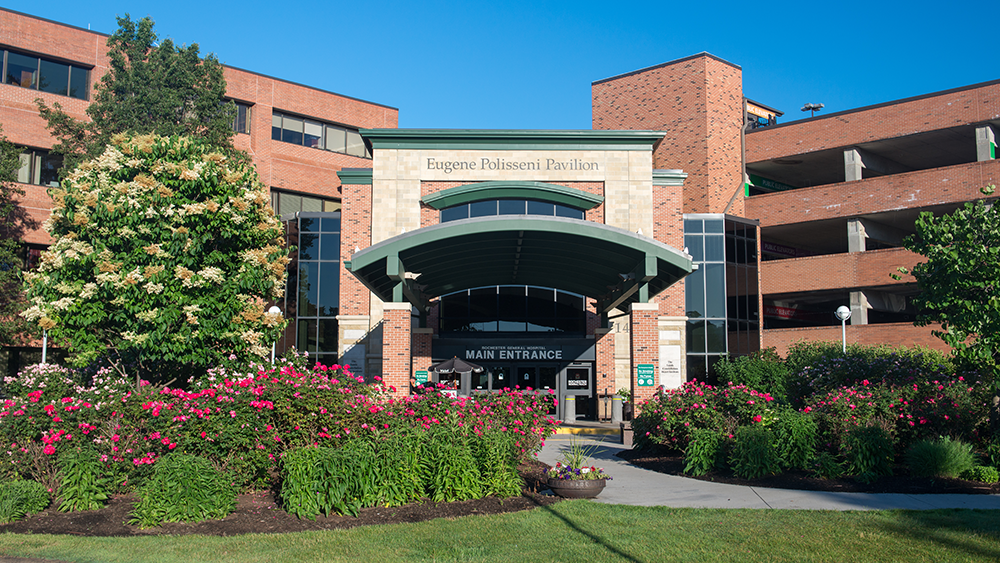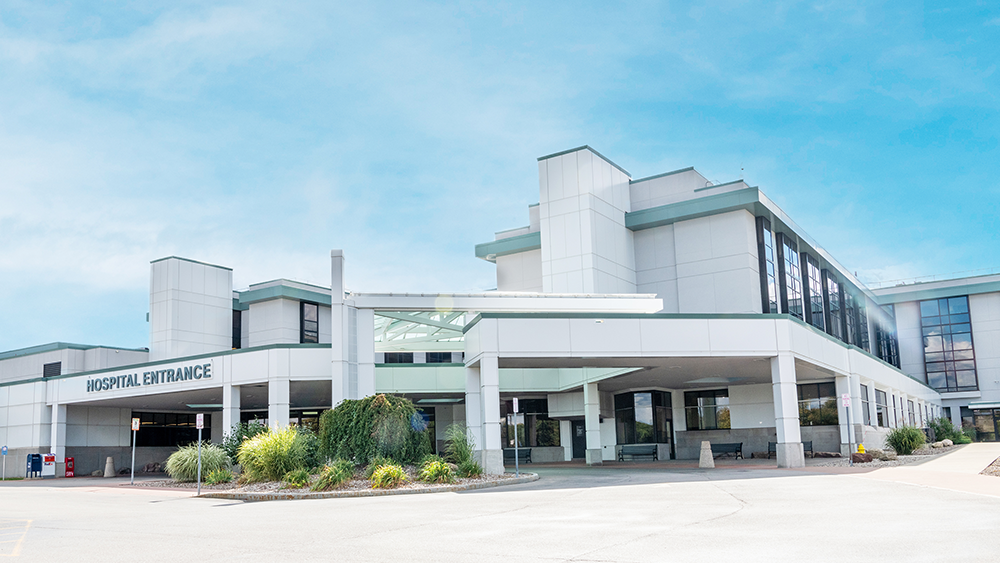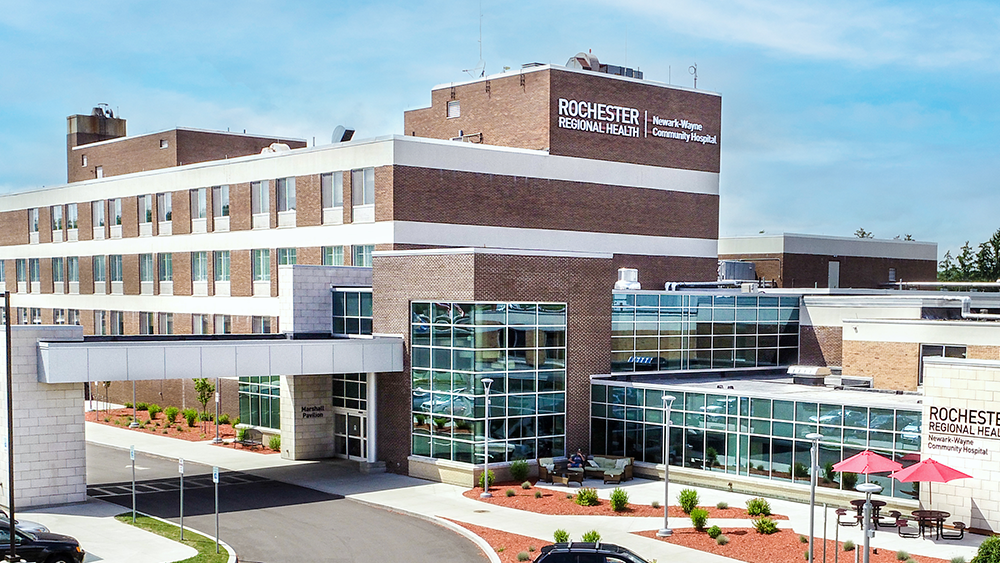Our Stroke Centers
Every second matters for stroke patients.
Immediate medical attention is lifesaving and can reduce the possibility of long-term disability and complications.
Rochester Regional Health has four recognized stroke centers that provide rapid access to lifesaving stroke care.






Latest Stroke News
Other common signs of a stroke are sudden:
- dizziness, trouble walking, or loss of balance or coordination
- trouble seeing in one or both eyes
- severe headache with no known cause
- numbness of the face, arm, or leg
- confusion or trouble understanding others
Stroke Symptoms

Other common signs of a stroke are sudden:
- dizziness, trouble walking, or loss of balance or coordination
- trouble seeing in one or both eyes
- severe headache with no known cause
- numbness of the face, arm, or leg
- confusion or trouble understanding others
Are You At Risk For A Stroke?
Be proactive. Take our 10 question Stroke Quiz below to help determine if you may be at risk for a stroke.

How to Prevent a Stroke
Up to 80% of strokes are preventable through risk factor management. High blood pressure is the single most important treatable risk factor for stroke. Preventing, diagnosing, and controlling it through lifestyle changes and medicine are critical to reducing stroke risks.
There are several steps you can take to reduce your risk for stroke:
- Eat a healthy diet low in sodium with plenty of fruits and vegetables
- Maintain a healthy weight
- Be physically active
- Don't smoke, and avoid secondhand smoke
- Limit alcohol use
- Prevent or manage your other health conditions, especially high blood pressure, high cholesterol, diabetes, atrial fibrillation, circulatory problems, and obesity
Our Stroke Experts
Our acute stroke team of physicians, neurosurgeons, nurses, pharmacists, and therapists are specialists in stroke treatment. With rigorous training in rapid-response procedures, we work seamlessly to deliver nationally recognized stroke care.
Our care teams' focus is on quickly assessing our patients, providing treatments that can save their lives, limit long-term disability, prevent complications, and decrease the risk of having another stroke.
Learn More About Our Stroke ExpertsDiagnosis and Treatment
Stroke care starts before the patient arrives at the hospital.
Rochester Regional Health carefully coordinates efforts with local Emergency Medical Services (EMS) to make sure that high-quality care begins en-route to a Rochester Regional Health hospital. We require EMS to notify us of potential incoming stroke patients, so our stroke team can be assembled and ready when the patient arrives. We also provide EMS teams with ongoing education on the latest stroke protocols.
Diagnostic Testing
Effective treatment will depend on the type of stroke a patient is having. For all people with stroke, we need to determine why the stroke occurred in order to prevent future strokes.
Our stroke doctors use a wide variety of advanced diagnostic tests and work alongside other Rochester Regional Health specialists to reach a clear and definitive diagnosis.
Diagnostic tests may include:
- CT Scan: an x-ray of the brain that reveals evidence of bleeding or damage of brain cells to help identify the type of stroke and its location
- Magnetic Resonance Imaging (MRI): computerized brain imaging done with magnets instead of x-ray to find small changes in brain tissue
- Carotid duplex ultrasound: examines blood vessels in the neck to see if they are narrowed or blocked
- Transcranial dopplers: examines blood vessels in the neck to see if they are narrowed or blocked
- Transthoracic echocardiogram (TTE): use of ultrasound to examine the heart function and determine if the blood clot formed in the heart
- Transesophageal echocardiogram: ultrasound of the heart through the esophagus, usually prescribed after an abnormality is found in the results of a TTE
- Cardiac monitoring: patches placed on the chest and attached to a monitor to determine heart beat irregularities
Emergency Treatments
- Medication management:
In some cases, patients may receive a clot-dissolving medicine called tissue plasminogen activator (tPA or alteplase). This medicine can help reduce the risk of disability, especially if it's given as soon as possible after the stroke happens. Alteplase can typically be given up to 4.5 hours after stroke symptoms started. - Endovascular surgery:
In some cases, a minimally invasive procedure may be done to restore blood flow to the brain. Under x-ray guidance, our neurointerventional surgeons insert a thin, flexible tube (catheter) and a clot retrieval device through the femoral artery to remove the blood clot that caused the stroke. This procedure is called a mechanical thrombectomy. - Neurosurgery:
In a minority of cases, when emergency neurosurgery is deemed to be the best treatment option, a specialized surgical team will perform the surgery within two hours.
Recovering From a Stroke
Post-stroke treatment at Rochester Regional Health focuses on recovery, rehabilitation, adaptation to persistent neurologic deficits, and preventing recurrent strokes.
Our inpatient and outpatient stroke rehabilitation facilities rebuild their lives, restoring function and independence as much as possible.
A rehabilitation-needs-assessment will determine the types of rehab services a stroke patient may need. These may include speech, physical and occupational therapy, among other forms of rehabilitation.
Learn More About Our Stroke Rehabilitation Services
Post-Stroke Care
Stroke Wellness Program
Our Stroke Wellness Program extends the continuum of care for stroke survivors allowing them to stay active and improve their health after their formal rehabilitation has ended. Stroke patients receive customized exercise programs and holistic wellness education to support the goal of restoring strength, endurance, and agility after a stroke and reduce the risk for recurrent stroke.
Learn More About the Stroke Wellness Program
Stroke Education Group
Rochester Regional Health offers a Stroke Education Group to provide support and education for stroke survivors and caregivers in a positive and accepting environment. Members have an opportunity to share their experiences, and learn about prevention for a recurrent stroke.
Contact Us for More Information
Why Choose Rochester Regional Health Stroke Centers
Rochester Regional Health is dedicated to delivering the highest standard of care to meet the specialized needs of people affected by stroke. We implement aggressive protocols and stroke treatment quality measures that are given to reduce complications and improve quality of life for stroke patients.
The care we provide is meticulously managed to comply with the latest standards in stroke treatment required by the New York State Health Department.
Our unique stroke nurse navigator model is the only one of its kind in the Rochester area. Your stroke nurse navigator helps manage your care from the minute you come into our hospital until you are able to return home - and even helps coordinate your continued outpatient clinical and therapy appointments and medical treatment. We offer education, support, and a shoulder to lean on for patients and families.
Stroke Research
As a comprehensive stroke center, Rochester General Hospital participates in multiple clinical research studies (clinical trials). Conducting clinical trials allows us to offer the latest, cutting-edge treatments to our patients and gives them the opportunity to contribute to the improvement of care for future patients.
Call (585) 922-5365 to learn more about our current clinical research studies
Stroke Care that Changes Lives
Every 40 seconds, someone in the U.S. has a stroke. The faster the stroke is treated, the more likely the patient is to recover. Help save a life by recognizing the signs of a stroke, and where to go for help if and when it strikes.
